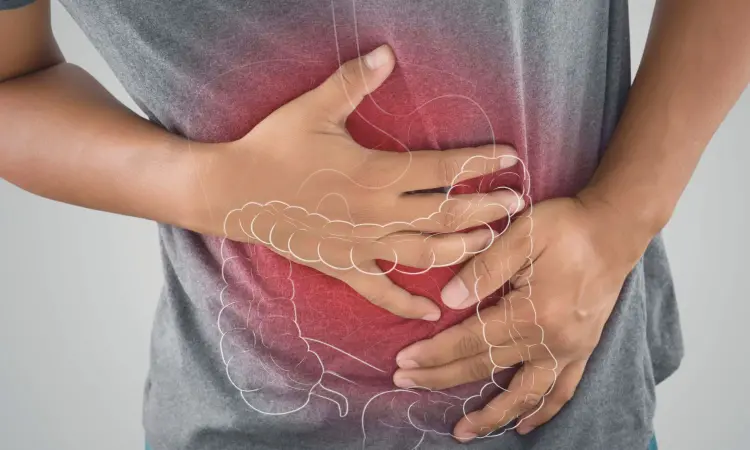- Home
- Medical news & Guidelines
- Anesthesiology
- Cardiology and CTVS
- Critical Care
- Dentistry
- Dermatology
- Diabetes and Endocrinology
- ENT
- Gastroenterology
- Medicine
- Nephrology
- Neurology
- Obstretics-Gynaecology
- Oncology
- Ophthalmology
- Orthopaedics
- Pediatrics-Neonatology
- Psychiatry
- Pulmonology
- Radiology
- Surgery
- Urology
- Laboratory Medicine
- Diet
- Nursing
- Paramedical
- Physiotherapy
- Health news
- Fact Check
- Bone Health Fact Check
- Brain Health Fact Check
- Cancer Related Fact Check
- Child Care Fact Check
- Dental and oral health fact check
- Diabetes and metabolic health fact check
- Diet and Nutrition Fact Check
- Eye and ENT Care Fact Check
- Fitness fact check
- Gut health fact check
- Heart health fact check
- Kidney health fact check
- Medical education fact check
- Men's health fact check
- Respiratory fact check
- Skin and hair care fact check
- Vaccine and Immunization fact check
- Women's health fact check
- AYUSH
- State News
- Andaman and Nicobar Islands
- Andhra Pradesh
- Arunachal Pradesh
- Assam
- Bihar
- Chandigarh
- Chattisgarh
- Dadra and Nagar Haveli
- Daman and Diu
- Delhi
- Goa
- Gujarat
- Haryana
- Himachal Pradesh
- Jammu & Kashmir
- Jharkhand
- Karnataka
- Kerala
- Ladakh
- Lakshadweep
- Madhya Pradesh
- Maharashtra
- Manipur
- Meghalaya
- Mizoram
- Nagaland
- Odisha
- Puducherry
- Punjab
- Rajasthan
- Sikkim
- Tamil Nadu
- Telangana
- Tripura
- Uttar Pradesh
- Uttrakhand
- West Bengal
- Medical Education
- Industry
Intravenous Lidocaine Ineffective for Gut Function Recovery After Colon Surgery, finds research

UK: A recent clinical trial published in the Journal of the American Medical Association (JAMA) has shed light on the potential benefits of intravenous (IV) lidocaine in promoting gut function recovery following colonic surgery. The researchers found that among patients undergoing elective minimally invasive colon resection, perioperative administration of 2% intravenous lidocaine did not improve the return of gut function at 72 hours.
While this study reported no adverse events linked to the lidocaine administration schedule used, concerns remain about the potential risks of systemic toxicity and fatal outcomes associated with its use.
Despite the recovery benefits associated with minimally invasive surgical techniques, delayed return of gut function following colectomy remains a frequent obstacle to timely hospital discharge. Considering this challenge, Hugh Paterson, University of Edinburgh, Edinburgh, United Kingdom, and colleagues set out to assess the impact of a 2% perioperative intravenous lidocaine infusion on gut function recovery after elective minimally invasive colon resection.
For this purpose, the researchers conducted the ALLEGRO trial, a randomized, placebo-controlled, double-blind study in 27 UK hospitals. Between August 2018 and April 2023, 590 adults undergoing elective minimally invasive colon resection for benign or malignant conditions were randomized to receive 2% intravenous lidocaine or saline placebo. Lidocaine was administered as a 1.5-mg/kg bolus followed by a 1.5 mg/kg/h infusion for 6 or 12 hours, while the placebo group received saline.
The primary outcome was gut function recovery at 72 hours post-surgery, with 11 secondary outcomes, including postoperative ileus, recovery timelines, opioid use, and quality of life measures.
The following were the key findings of the study:
- A total of 590 patients were enrolled, 295 were randomized to the intervention group and 295 to the control group.
- After 33 postrandomization exclusions, 557 patients were included in the analysis (279 intervention, 278 control).
- The study population included 249 female patients (44.7%), with a mean age of 66.
- Of the participants, 96% received the randomized treatment.
- Return of gut function at 72 hours, defined by the GI-3 composite outcome, was achieved by 57.3% of patients in the lidocaine group and 59.0% in the placebo group.
- The adjusted absolute difference in gut function recovery between groups was −1.9%.
- No significant differences were observed between the intervention and control groups for the 11 secondary endpoints.
This study had limitations, including no data on race, ethnicity, or socioeconomic status, exclusion of complex colorectal surgeries, and lack of strict protocols for anesthetic or surgical techniques. Additionally, subgroup analysis showed no difference between 6-hour and 12-hour lidocaine infusions, making longer durations unlikely to improve outcomes and riskier.
"The findings showed that in adults undergoing elective minimally invasive colon resection, perioperative infusion of 2% IV lidocaine showed no improvement in gut function recovery at 72 hours," the researchers concluded.
Reference:
Paterson H, Vadiveloo T, Innes K, et al. Intravenous Lidocaine for Gut Function Recovery in Colonic Surgery: A Randomized Clinical Trial. JAMA. Published online November 27, 2024. doi:10.1001/jama.2024.23898
Dr Kamal Kant Kohli-MBBS, DTCD- a chest specialist with more than 30 years of practice and a flair for writing clinical articles, Dr Kamal Kant Kohli joined Medical Dialogues as a Chief Editor of Medical News. Besides writing articles, as an editor, he proofreads and verifies all the medical content published on Medical Dialogues including those coming from journals, studies,medical conferences,guidelines etc. Email: drkohli@medicaldialogues.in. Contact no. 011-43720751


